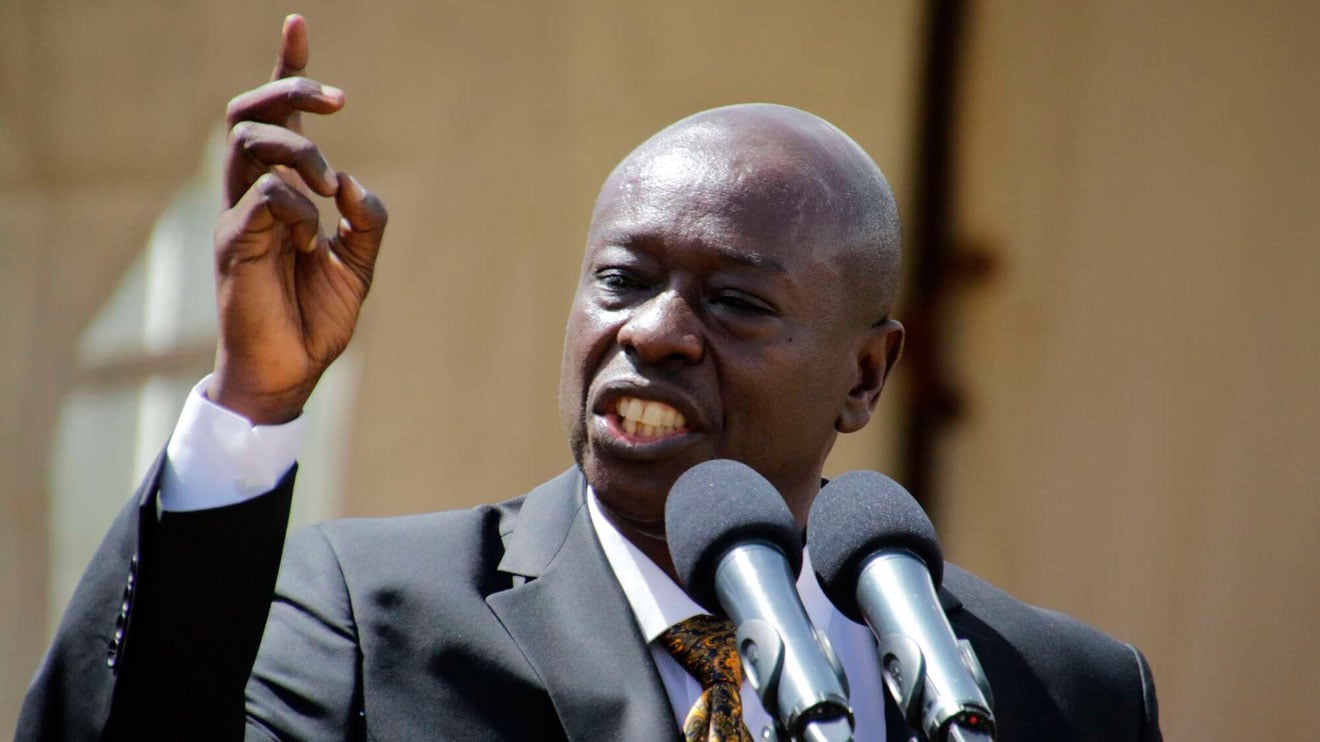
Some of the guards for Saracen Uganda Ltd. The Security company recently recruited guards to protect key oil and gas security installations at the central processing facilities as construction of the national oil pipeline begins. PHOTO | FILE
|National
Prime
Saracen fight: URSB sides with Jovia Saleh
What you need to know:
- Background. Both Ms Jovia Saleh and the South Africans accuse the other of trying to steal the company. SSL claims the South Africans altered the new shareholding without the knowledge and concurrence of Gen Saleh, which was allegedly a clandestine business coup.
- SSL also claims that the South African shareholders mismanaged the company, including locking Ms Jovia Saleh out of management and board meetings.
The Uganda Registration Services Bureau (URSB) has reversed the decision of High Court in the ownership dispute over Saracen Uganda Ltd, or SUL, by ruling again that the shareholding structure of the company should revert to the time of incorporation in 1995.
In the ruling dated October 12, but circulated six days later after this newspaper published an exposé about a simmering dispute between the South African majority shareholders and their Ugandan co-shareholders, URSB said it has powers to rectify a [business] register on among other grounds, if information is misleading, inaccurate, or issued in error.
“From the facts at hand it is clear that the respondents (South Africans) restructured the company’s shareholding without SUL’s express consent which, according to the company’s articles, is illegal and, therefore, ought not to be done in the first place. There is also evidence that affairs of the company are not being run in the proper manner,” the ruling, signed off by one Kule Walid, a registrar of companies, reads in part.
SUL was incorporated in 995 and Special International Ltd (SIL) at the time owned 75 percent, and Gen Salim Saleh’s Special Services Ltd (SSL) held 25 percent. The security firm recruited as its core personnel retrenched National Resistance Army (NRA) soldiers whose fight brought President Museveni to power 35 years ago.
Mr Lafras Luitingh, a South African national, solely owned 75 shares in SUL while Gen Salim Saleh owned majority shareholding in SSL. Prior to joining hands with Gen Saleh in the mid-1990s, Mr Luitingh co-founded the mercenary private military company, Executive Outcomes (EO), composed largely of former South African special operations personnel.
The company, among others, offered military, operational and logistics to countries in conflict with the endorsement of respective governments, but folded up in December 1998.
Highly placed sources told this newspaper that Mr Luitingh was specifically requested to co-found SUL due to the trailblazing history and competent military personnel he superintended over as the deputy chief executive of Executive Outcomes.
Genesis of conflict
The October 12 URSB decision in Kampala was in respect of a petition filed in January 2017 by SSL, now represented by Gen Saleh’s wife, Ms Jovia Kyomuhendo, challenging the divesture of SIL’s shareholder holding.
The shares had been split among two South African nationals, Mr Luitingh and Hendrik Pelser alias Bill Pelser, with each taking 33 percent, five percent to Winork Investments Ltd owned by Enock Rukidi, a partner at Kasirye and Byaruhanga Co. Advocates, and another 4 percent was allotted to John Mugisha, the former SUL managing director.
SIL ceased to exist in 2010 after it was deregistered in the British Virgin Islands, a tax haven.
Ms Jovia Saleh, whose SSL retained its 25 percent, filed the petition against all the new shareholders, arguing that their shareholding structure including by way of increasing share capital by the majority shareholders reduces the value of the other shares, which prejudiced the interests of the latter. Put another way, she argued that her shares were now worth less than what they were before the transfer.
URSB first ruled on the matter in 2018, reversing SIL’s shareholding to the time of incorporation in 1995, prompting the South African majority shareholders to appeal the decision in the High Court. Twice, High Court judge Musa Ssekaana ruled in favour of the South Africans on grounds that URSB’s decision to transfer SIL’s shareholding to the time of incorporation well knowing that the company was deregistered is both strange and suspicious.
The latest ruling—reversal of a High Court ruling by URSB, the central registry and regulator of companies— has set a stage for legal contest on whether URSB is superior to courts to overturn the verdict by a High Court judge.
Insiders at Saracen intimated to this newspaper that SSL is bent on recognising only the URSB ruling, and not Justice Ssekaana’s decision, which the South Africans relied on.
Both Ms Jovia Saleh and the South Africans accuse the other of trying to steal the company. SSL claims the South Africans altered the new shareholding without the knowledge and concurrence of Gen Saleh, which was allegedly a clandestine business coup.
SSL also claims that the South African shareholders mismanaged the company, including locking Ms Jovia Saleh out of management and board meetings besides failing to remit taxes to Uganda Revenue Authority, and staff contributions to the National Social Security Fund (NSSF). They also allege that Mr Pelser misappropriated $5m (Shs17b) after the company attempted to expand operations to neighbouring Democratic Republic of Congo, and Tanzania.
However, in one affidavit filed by the Kasirye and Byaruhanga Co. Advocates, the registered company secretary, in response to SSL’s petition, Mr Rukidi detailed that SSL as a dutiful shareholder was all along in the know about affairs of the company, from re-allotment of SIL’s shareholding to expansion of business to regional neighbours.
Daily Monitor has also seen minutes of a meeting attended by SSL representatives where the botched investment in DRC and Tanzania was discussed.




